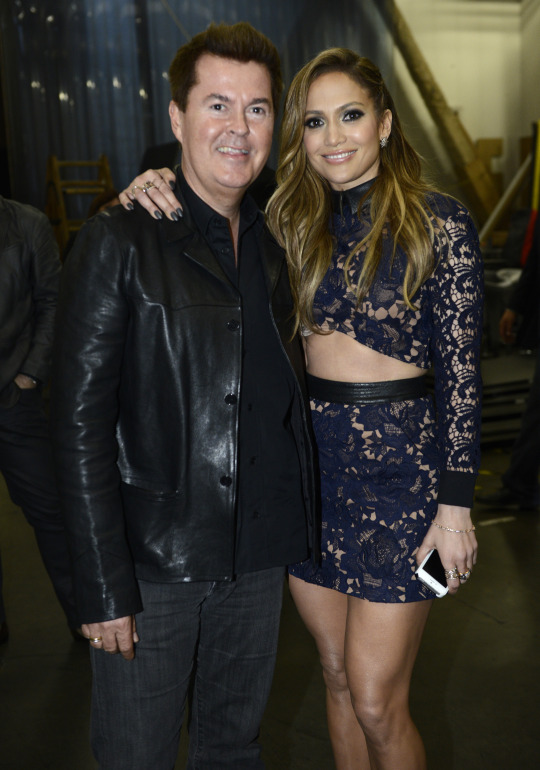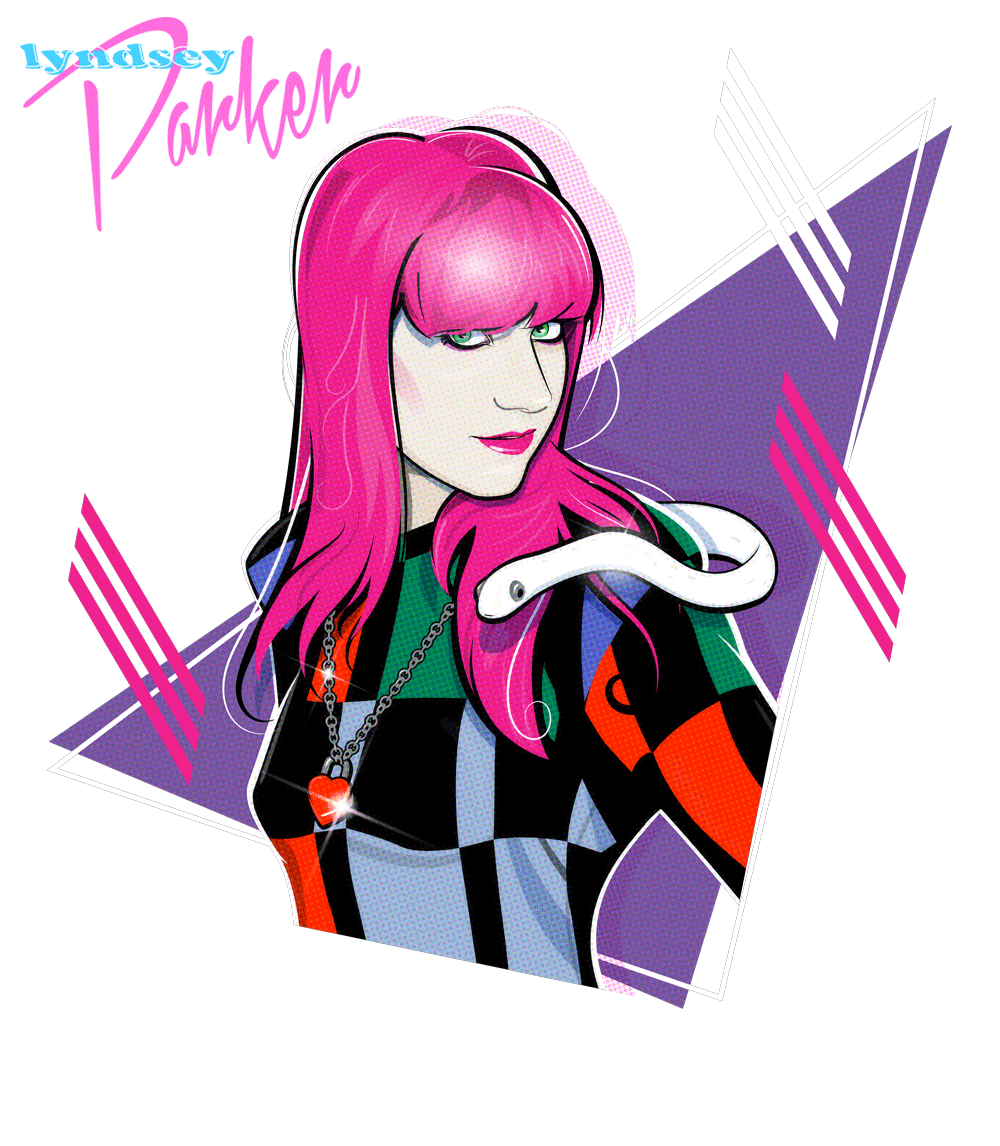
(Simon Fuller Jennifer Lopez on the Idol set. Photo: Getty Images)
American Idol, incredibly, ends next week. Or does it? Maybe not, according to the show’s creator, Simon Fuller — who envisions a multi-platform Idol reboot in the hopefully not-too-distant future.
“Who knows?” says Fuller, speaking exclusively to Yahoo Music’s Reality Rocks at a press dinner to celebrate the show’s historical 15-season run. “Here we are in 2016. There’s plenty of opportunities to be very interactive. The sort of burgeoning reach of social media, and what social media has become, is perfectly suited to what American Idol could be going forward — and might have been, if social media had been around in the past. Each fan of American Idol back in the day, if they’d had their little social network, Snapchat in particular… it’s all very compatible and in tune with American Idol. So I’m thinking far more interactive, far more connected, far broader.”
So, he really doesn’t think this is actually the end of Idol?
“No, not at all. Certainly it’s not the end of my creative journey around this idea, this show, and all that it encompasses: music, finding talent, the competitive spirit of people with a dream,” assures Fuller. “There’s a lot there. I created Pop Idol in 1999. It was a different world. And I think now, to be able to refine it and elevate it for the digital world, which is so interactive, we could do different things. It was hard to make substantial changes when we were the biggest show in America, because everyone was so scared of change, so we weren’t able to make the changes that I was thinking about and wanted to make. There was too much risk involved. In a way now, I can relax and really think about it on a different level.”
As for how Fuller feels about American Idol ending – for now, at least — after such a long run, he says: “I guess I sort of have broad, mixed emotions. On the one hand, after doing 15 seasons, it’s sad to see it come to an end. But on the other hand, I probably wouldn’t have imagined it to be on the air for 15 seasons. I think it gives me an opportunity to reflect and take in all that has happened – and think maybe, just maybe, on how to reboot it, to come up with something for the new generation.”
Fuller actually hopes Idol will be most known for being an innovative program. “For me, as the creator, I’m the most proud of the fundamental elements of that show. I want it to be remembered for a next-generation TV show. At the front end of the millennium, we helped define what reality television is. We embraced technology in its earliest days with interactivity; AmericanIdol.com was one of the early [television show] websites. This show was a multimedia, multi-platform idea.
“I want it to be known for embracing so many fundamental elements of entertainment: live, competitive, interactive, that ‘sporting’ notion, the reality of getting to know real regular people who have dreams, the soap opera of the judges and contestants, the celebration of music. And also that a television show could be a real, physical event. I just want it to be remembered for being innovative, pioneering – and maybe the most successful TV show of all time. It would just be nice for people to recognize that. Now that we are no longer competing with other networks who resented its success, now is maybe the time to just recognize the success and be benevolent. I just want it to be a show where people think, ‘That was a part of my life. I sat with my grandparents and watched it. Fifteen years of my life was American Idol.’”
And speaking of resentment, what did Fuller think of the various musical artists – Sting, Don Henley, and Eric Church come to mind – who bashed shows like American Idol, claiming TV talent competitions were ruining the record business? He shrugs good-naturedly.
“I think in the early days that was quite common, because [Idol] was threatening. It was basically taking an entertainment platform – television — and having that dominate and lead the whole music industry: television as the savior of music. And it was mainstream. Some artists don’t like to necessarily think of themselves as being mainstream, or having to appeal to the masses or conform in order to break music. And I’ve never had a problem with that attitude; I understood that.
“I think the music industry was struggling to find its identity, struggling to deal with bad record sales, and then I come along with this show which is celebrating the dreams of the masses — and saying, ‘Actually, anyone can do this.’ That’s kind of threatening to some artists. But it was not meant be threatening. It was just meant to capture that emotion that anything is possible.
“But I think over the years as we became so successful, and we created legitimate stars, I think those [detractors] probably have a different view now. I think in the case of Carrie Underwood and Kelly Clarkson, in particular those two — who are without a doubt renowned as legitimate stars — they would both tell you that without American Idol, they would have never become famous. They would have never sold millions of albums. While Idol may be remembered for being a television show, for me, the music was always the heart and soul of it. In concert, we sold out hundreds and hundreds of arenas. To have a television show that can also sell out arenas and generate over a hundred #1 singles for superstar artists, who have won awards in every genre of entertainment, I’m glad it’s known for that. So our defense is in our history.
“But maybe if Sting were here, he would not feel the same!”
And now, it’s time for a little Idol-history lightning round…
YAHOO MUSIC: What’s your all-time favorite Idol performance?
SIMON FULLER: “Oh, that’s really hard to say. There’s so many, but ‘Natural Woman’ by Kelly Clarkson springs to mind. And ‘Mad World’ by Adam Lambert.”
Do you have a favorite Idol season?
“Probably the Carrie Underwood season [Season 4]. It was so exciting. The show was really at its peak then.”
Is there any one contestant you were shocked didn’t win or didn’t go farther?
“Oh, I always said, ‘It is what it is.’ I mean, you could have said Chris Daughtry was a shock, but then he did so well afterwards. Maybe that was the biggest shock… Or maybe for me, Angie Miller [who placed third in Season 12]. That one really shocked me. I really thought she was going to win. She probably should have won.”
Favorite coronation song?
“[Phillip Phillips’s] ‘Home,’ for sure. We knew we had something special with that song. Second would be [David Cook’s] ‘Time of My Life.’ That one came from a songwriting contest, which I thought was great. I would have liked to do more of that sort of thing.”
Favorite mentor?
“I always liked Harry Connick Jr. as a mentor, and that’s really what led to him being a judge on the show. He was such a great mentor — so funny and witty and charming and charismatic.”
Favorite judge?
“I don’t mean to offend anybody, but for me personally, Jennifer Lopez. She was a true fan of the show, long before I asked her to come on. She just brought a warmth and charisma and glamour to the show that it needed. And I see her as a transition from when Simon Cowell left – she kept it going, and led the way for the next years. I love Jennifer. And obviously you can’t ignore the fact that Simon [Cowell] was the first. It was really built around him.”
OK. So American Idol is coming back next year. Right? Right?
“Ha. Sure. We’ll see…”
Follow Lyndsey on Facebook, Twitter, Instagram, Google+, Amazon, Tumblr, Vine, Spotify
This article originally ran on Yahoo Music.







